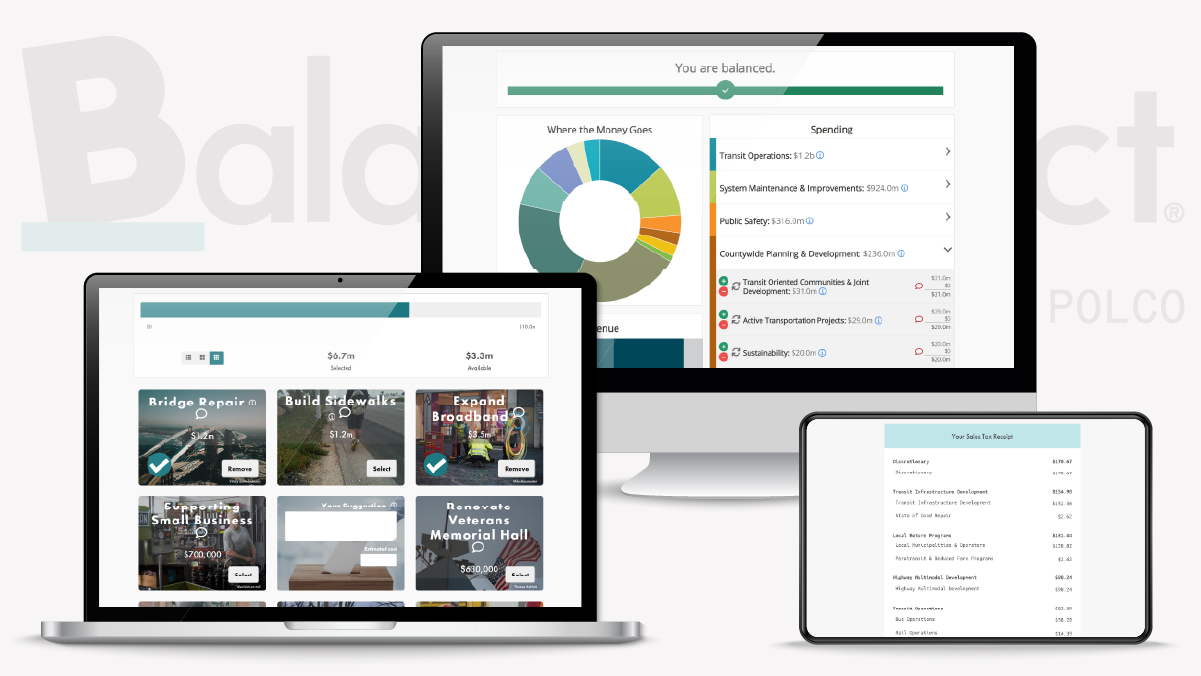Reimagining Public Budgets: The Beginning of Balancing Act (Now a Polco Tool)
By Polco on April 15, 2025

Did you know that three centuries ago, “opening one’s budget” meant speaking freely and honestly? It’s true—language evolves, and so have the ways we talk about public finances. Yet, in many modern budget hearings, the spirit of open expression is often missing. Too few residents speak up. Too few governments have the tools to truly listen.
That’s the gap Balancing Act set out to close.
A New Era of Budget Engagement
Launched in 2015, Balancing Act was created to make budget conversations more accessible, transparent, and—yes—even enjoyable. It began as a simple but powerful idea: Let people interact with public budgets online, in ways that are intuitive, educational, and meaningful.
Can’t make it to a city council meeting? No problem. Balancing Act offered a way to explore your community’s budget on your own time—and even propose changes that reflect your values.
Need more actionable resident input for your government budget process? Balancing Act helped public officials collect feedback that wasn’t just anecdotal, but data-rich—complete with qualitative and quantitative insights into how residents wanted their tax dollars spent.
The Reality of Engagement
Of course, no single tool is a silver bullet. Public engagement—especially around budgets—is messy, complex, and often contested. People have different priorities. Some don’t know how to get involved. Others might not want to. And no app (no matter how slick) can instantly make fiscal planning a blockbuster topic at the dinner table.
But what Balancing Act offered then—and what it continues to offer today as part of the Polco platform - is a long-term strategy. A bridge between residents and public institutions. A way to build trust, increase transparency, and foster the kinds of compromises that make budgets not just balanced, but broadly accepted.
Where We Go From Here
Balancing Act was just the beginning. Since then, it has grown and evolved—integrated into Polco’s full ecosystem of data, insights, and civic engagement tools. Now, it powers everything from interactive budget simulations and taxpayer receipts to participatory prioritization and live community input sessions.
We believe the future of budgeting is digital, transparent, and people-centered. And that future started with the same idea that launched Balancing Act in the first place: If we give people the right tools, they will speak their minds—and help shape better communities.
Popular posts
Sign-up for Updates
You May Also Like
These Related Stories

The 500-Page Budget No One Reads

Why Polco's Rethinking Budgeting Tools are Essential for Transparent and Effective Budget Planning


